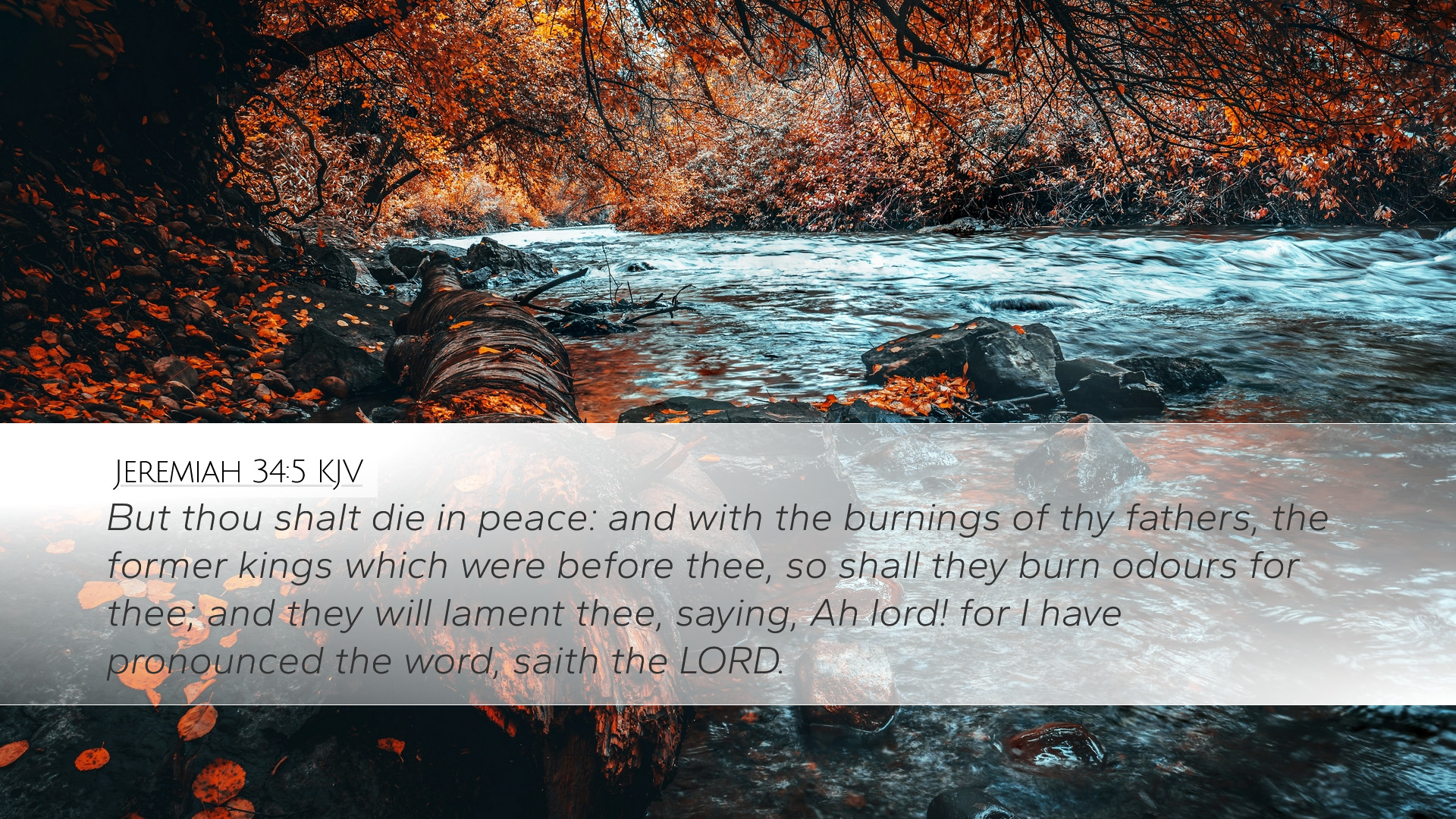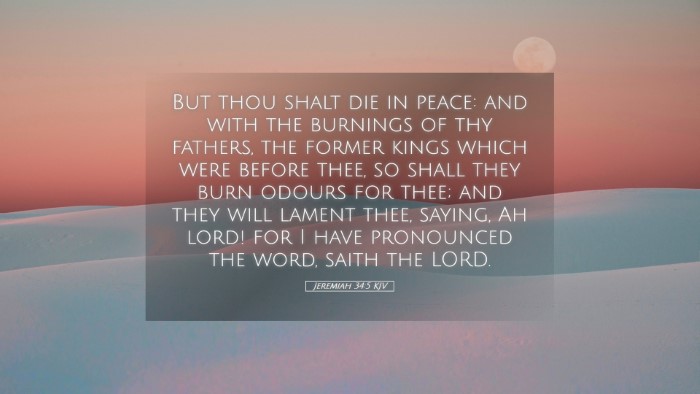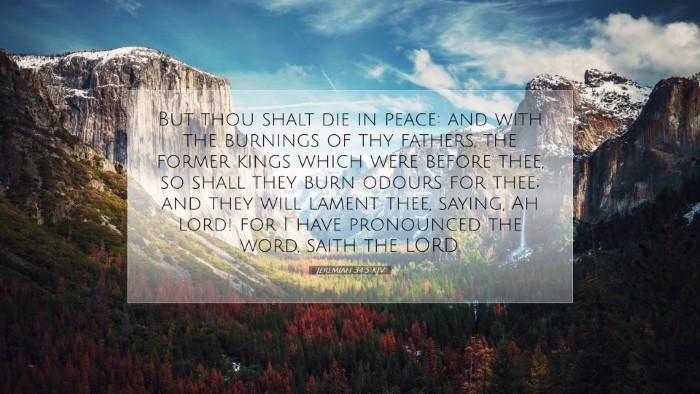Commentary on Jeremiah 34:5
Verse Text: "But thou shalt die in peace: and with the burnings of thy fathers, the former kings which were before thee, so shall they burn odours for thee; and they will lament thee, saying, Ah lord! for I have pronounced the word, saith the Lord."
Introduction
This verse is nestled within the context of God's message to King Zedekiah, who was facing dire circumstances as the Babylonian siege continued. The prophecy serves as both a comfort and a solemn warning. Various public domain commentaries shed light on the implications of this passage, enriching our understanding of its theological and historical significance.
Contextual Analysis
The historical backdrop of Jeremiah 34:5 is vital for understanding its nuances. Jeremiah prophesied during the final years of Judah's existence as a kingdom, a period marked by moral decay, idolatry, and disobedience to God. This verse appears in a larger narrative concerning the proclamation of liberty to the Hebrew slaves amidst military conflict.
- Matthew Henry: He emphasizes the significance of the promise that Zedekiah would die peacefully, contrasting the potential violent fate he might encounter in light of his kingdom's disobedience. This divine assurance, amidst chaos, serves to underline God's sovereignty and mercy even in judgment.
- Albert Barnes: Barnes comments on the phrase "with the burnings of thy fathers," indicating a royal burial custom, suggesting that Zedekiah would receive the honors due a king despite the circumstances leading up to his death. This reflects God's mercy as he grants Zedekiah dignity in death, unlike many of his contemporaries or those who defy divine ordinances.
- Adam Clarke: Clarke notes the cultural custom of lamentation and burning incense for the deceased kings, connecting the mention of the "burnings" to the practices that symbolized respect and mourning for leaders in Israel's history.
Theological Insights
This passage articulates a profound truth about divine intervention and the humanity of kings. God's message, through Jeremiah, reminds the rulers that, despite their failures, He offers a pathway of reconciliation and peace, even at the end of life.
- Divine Sovereignty: The assurance that Zedekiah would die in peace reinforces God's control over life and death. It highlights His ability to determine the fates of people, particularly those in power.
- Grace Amid Judgment: While the kingdom is in turmoil, God's promise to allow Zedekiah a peaceful death illustrates the grace present amidst impending judgment. This theme of grace even in judgment can be applied to various biblical narratives, reminding believers of God's overarching compassion.
- Hope for Exiles: To the exiled people, this assurance could have served as a beacon of hope. Knowing that their king would not meet a brutal end could alleviate fears of complete abandonment and chaos.
Practical Applications
For pastors, students, and theologians, Jeremiah 34:5 serves as a poignant reminder of several critical themes:
- Embrace of God's Sovereignty: Believers are called to trust in God's sovereign plans, even when facing dire circumstances. The feeling of despair does not negate God's ability to grant peace.
- Understanding Judgment and Mercy: This passage illustrates God's dual nature—holy and just, yet merciful. It encourages deeper theological reflection on the balance between judgment and grace in our lives.
- Respect for Leadership: The treatment of kings and leaders—even those who fail or fall short—can guide contemporary discussions about authority, respect, and God's ultimate plan for leadership.
Conclusion
Jeremiah 34:5 encapsulates a rich explanation of God's promise of peace amid turmoil, showcasing a God who remains steadfast in His sovereignty and mercy. Through the prophetic words of Jeremiah, we are reminded of the expectations placed upon leaders and the divine intention to provide hope even in the darkest of times. The analysis provided by the noted commentators enriches our understanding and encourages us to reflect on the broader theological implications of divine promises and the treatment of authorities within God's plan.


